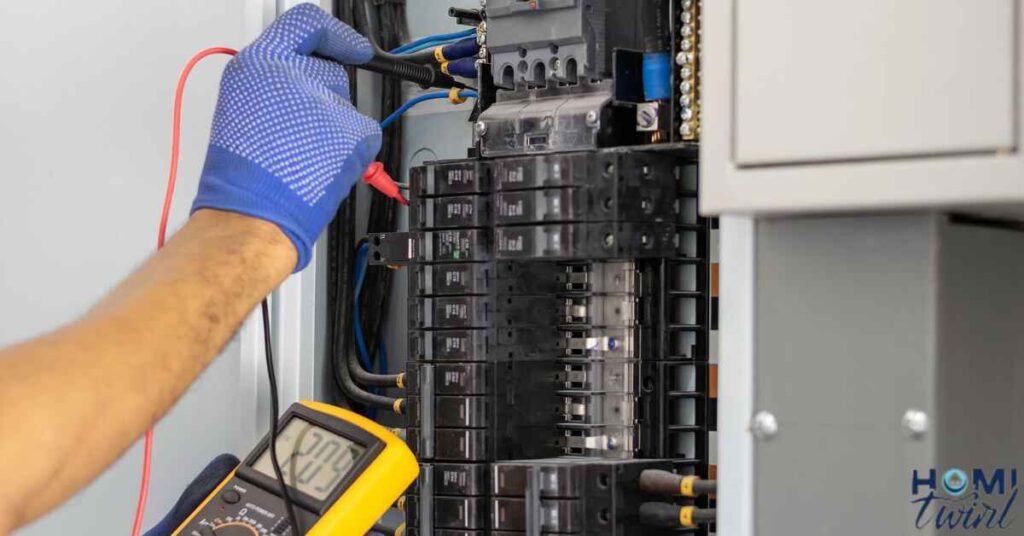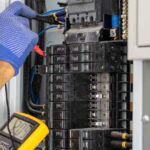Upgrading your home’s electrical system is important for safety and efficiency. If you notice flickering lights, circuit breakers that trip often, or other electrical issues, your system might be outdated.
This can be unsafe and cause problems with how electricity flows in your home. Upgrading can make your home safer by reducing fire and shock risks. It also allows for more power to run modern appliances and devices.
Adding new outlets can eliminate the need for extension cords. Upgrading your electrical system should be done by a licensed electrician to ensure it’s done safely and meets local codes.
Complete Guide To A Safer, Smarter House
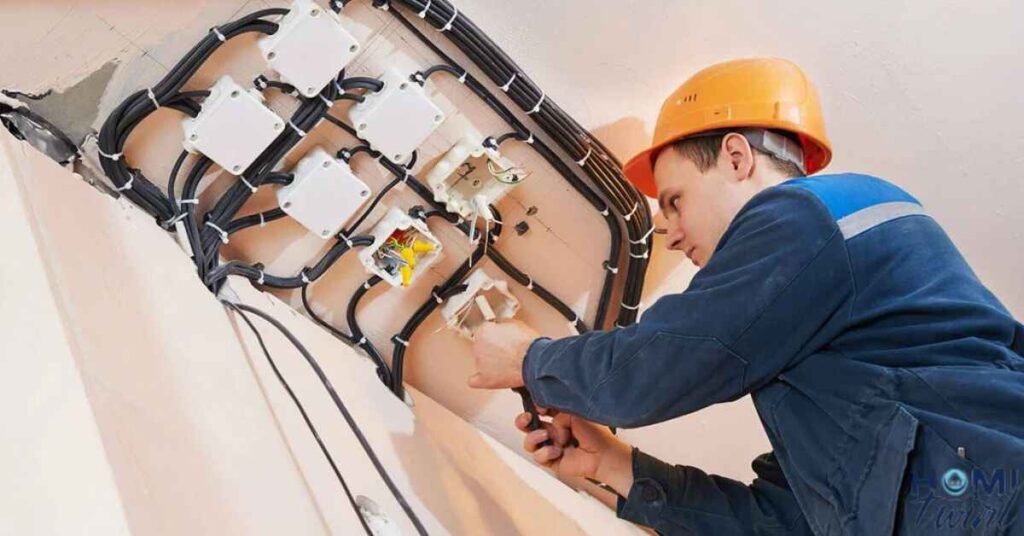
Ever been left in the dark by a tripped breaker? Or watched your lights flicker like they’re auditioning for a horror movie? If so, it might be time to give your home’s electrical system a much-needed boost.
Read This Blog: HOW TO REPAIR DINING ROOM CHAIRS
In this comprehensive guide, we’ll shed some light on everything you need to know about upgrading home electrical systems. From recognizing the signs that scream “upgrade me!” to understanding the nitty-gritty of your home’s electrical anatomy, we’ve got you covered. So, grab a cup of coffee, and let’s dive into the electrifying world of home electrical upgrades.
Why Upgrading Your Home’s Electrical System Isn’t Just a Bright Idea – It’s Essential
Let’s face it: we’re living in a world that’s more plugged in than ever. From smartphones and laptops to smart fridges and AI-powered home assistants, our homes are practically buzzing with electrical activity. But here’s the kicker – many houses, especially older ones, simply weren’t built to handle this kind of electrical demand. That’s where electrical system upgrades come into play.
Upgrading your home’s electrical system isn’t just about keeping up with the Joneses and their fancy new gadgets. It’s about.
- Safety First: Reducing fire and shock risks is paramount. Outdated wiring and overloaded circuits are like ticking time bombs in your walls.
- Power Up: Meeting modern energy demands ensures you can run all your devices without fear of overload.
- Home Value Boost: Believe it or not, a modern electrical system can increase your property’s worth. It’s a selling point that savvy homebuyers look for.
- Smart Home Ready: Preparing for the future of home tech means having an electrical system that can handle whatever cool new gadget hits the market next.
“An ounce of prevention is worth a pound of cure.” – Benjamin Franklin (who knew a thing or two about electricity!)
Red Flags: 6 Signs Your Home is Crying Out for an Electrical Upgrade
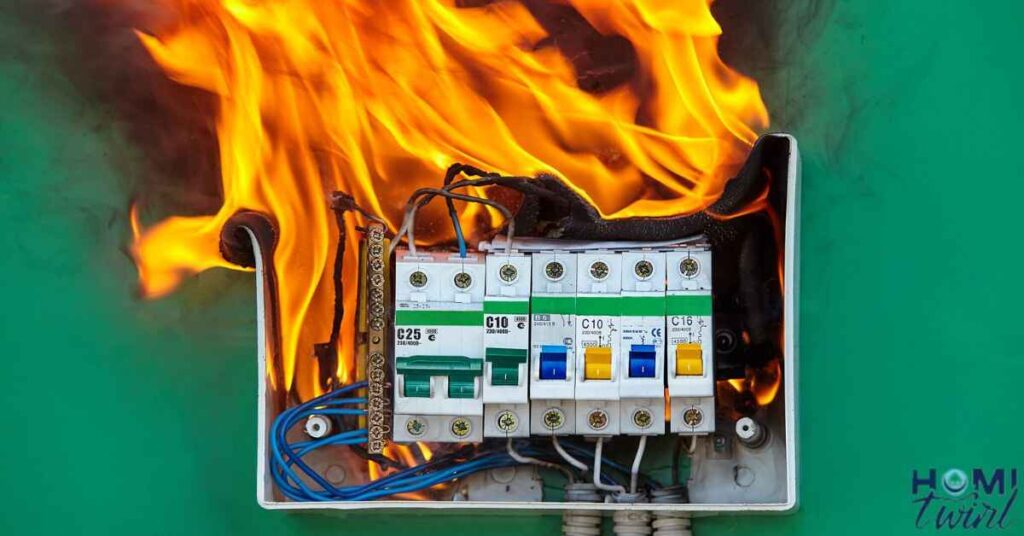
1. Breakers Breaking Down: When Tripping Becomes a Regular Thing
If your circuit breakers are tripping more often than a clumsy toddler, it’s a clear sign your electrical system is struggling to keep up. This frequent tripping is your home’s way of preventing overloads, but it’s also a cry for help.
2. The Flicker Effect: Why Your Lights Shouldn’t Do the Cha-Cha
Dimming or flickering lights aren’t just annoying – they’re a warning sign. This disco-like effect often indicates that your wiring is failing to deliver a consistent flow of electricity.
3. Smoke Signals: Sniffing Out Burning Odors and Spotting Sparks
If you smell something burning or see sparks around outlets, switches, or appliances, don’t wait – this is a serious fire hazard. It’s time to call in a pro for an immediate electrical system safety check.
4. Blast from the Past: Is Your Fuse Box a Relic?
Still rocking a fuse box instead of a modern circuit breaker panel? It’s time for an upgrade. Fuse boxes are outdated and can’t handle the electrical load of modern homes.
5. Circuit Overload: When Extension Cords Become a Way of Life
If your home looks like a spider web of extension cords and power strips, you’re likely dealing with too few outlets and overloaded circuits. This is not only inconvenient but also dangerous.
6. The Hot Spot: Outlets and Switches That Sizzle
Outlets or switches that are warm to the touch are a red flag. This could indicate loose wiring or other issues that need immediate attention.
Demystifying Your Home’s Electrical System: A Crash Course
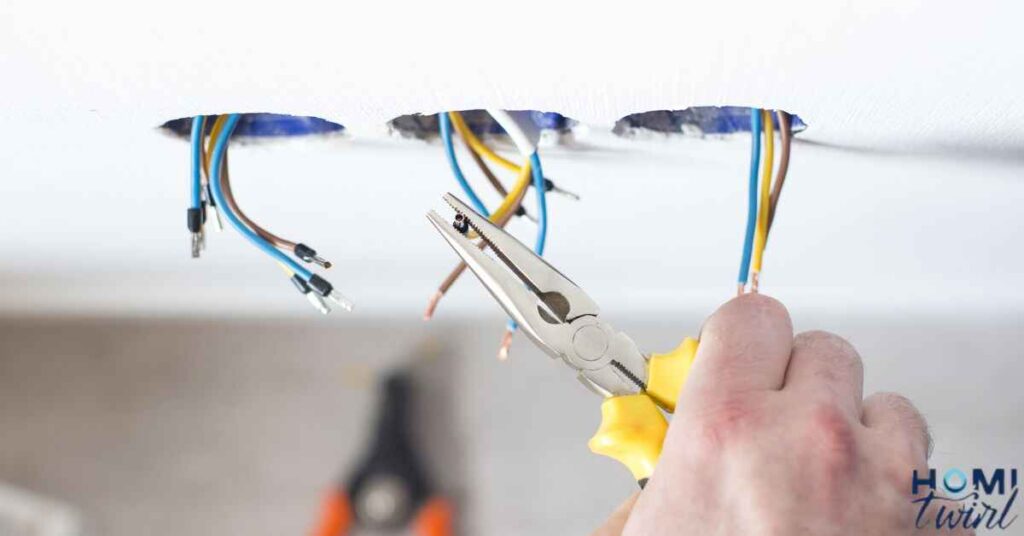
Understanding your home’s electrical system is key to knowing when and how to upgrade. Let’s break it down.
The Heart of It All: Your Electrical Service Panel
Think of this as the heart of your home’s electrical system. It’s where the main power line connects to your home and distributes electricity to various circuits.
The Lifeline: Understanding Your Main Service Line
This is the power line that connects your home to the utility company’s transformer. It’s the lifeline that brings electricity into your home.
Breaking It Down: Breakers and Fuses Explained
Circuit breakers (or fuses in older homes) are safety devices that cut off power when they detect an overload or short circuit. They’re like the bouncers of your electrical system, kicking out troublemakers before they can cause damage.
The Nervous System: All About Electrical Wiring
Wiring is the nervous system of your home’s electrical setup. Different types of wiring have been used over the years, and some older types can be hazardous.
| Wiring Type | Era | Safety Concerns |
| Knob-and-Tube | Pre-1950s | High fire risk, often ungrounded |
| Aluminum | 1960s-1970s | Prone to overheating |
| Copper | 1970s-Present | Generally safe, but older installations may need updating |
Plugging In: The Lowdown on Receptacles and Switches
These are the user interfaces of your electrical system. Modern homes should have grounded, three-prong outlets and GFCI (Ground Fault Circuit Interrupter) outlets in areas near water.
Staying Grounded: Why Proper Grounding Is a Big Deal
Grounding provides a safe path for excess electricity, protecting you from shocks and your appliances from damage. It’s a crucial component of electrical system safety.
Powering Up: Your Step-by-Step Guide to Upgrading Home Electrical
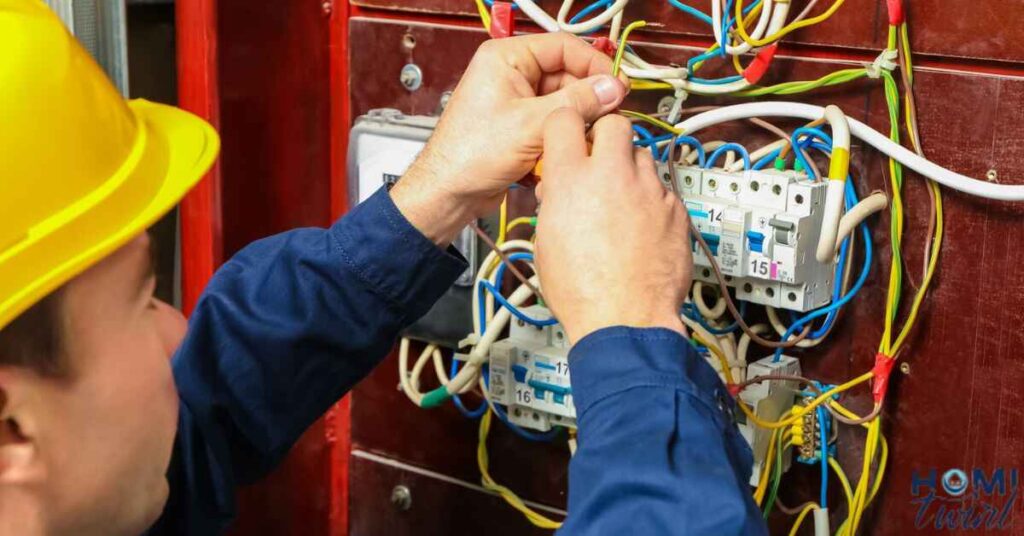
Ready to give your home’s electrical system a 21st-century makeover? Here’s how to do it right.
Step 1: Find Your Electrical Soulmate (aka a Licensed Electrician)
This isn’t a DIY project. Hiring a licensed electrician ensures the job is done safely and up to code.
Also Read This Blog: ARE MASSAGE CHAIRS GOOD FOR YOU
Step 2: Sizing Up Your Electrical Appetite
Your electrician will evaluate your home’s energy usage to determine what upgrades are needed. This might involve an electrical capacity increase.
Step 3: Out with the Old, In with the New Panel
If your panel is outdated, a circuit breaker upgrade or complete electrical panel replacement might be in order.
Step 4: Rewire for the Win
Older homes might need a complete wiring upgrade to handle modern electrical demands safely.
Step 5: Outlet Overhaul and Circuit Boost
Adding new outlets and dedicated circuits for high-draw appliances can prevent overloads and increase convenience.
Step 6: Switch It Up: Modernizing Your Controls
Upgrading to modern switches and installing GFCI outlets in kitchens, bathrooms, and outdoor areas enhances safety.
Step 7: Surge Ahead with Protection
Installing whole-house surge protection safeguards your expensive electronics from power spikes.
Step 8: Dot Your I’s and Cross Your T’s: Permits and Inspections
Ensure all work is properly permitted and inspected for electrical code compliance.
Stay Safe, Not Sorry: Electrical Upgrade Safety Tips
Even if you’re not doing the work yourself, it’s important to understand basic safety.
- Always turn off power at the main breaker before any electrical work begins
- Ensure your electrician uses proper safety gear
- Never attempt complex electrical work without proper training
DIY or Hire a Pro? The Great Electrical Debate
Why Hiring an Electrician Might Be Your Brightest Move
- Expertise: Electricians have the knowledge to handle complex systems safely.
- Code Compliance: They stay up-to-date on local electrical codes.
- Time-Saving: What might take you days can be done in hours by a pro.
- Warranty: Most offer guarantees on their work.
When DIY Might Be OK (But Proceed with Caution!)
Simple tasks like replacing a light switch or outlet can be DIY-friendly for the handy homeowner. But always err on the side of caution – when in doubt, call a pro.
Case Study: The Smith Family’s Electrical Makeover
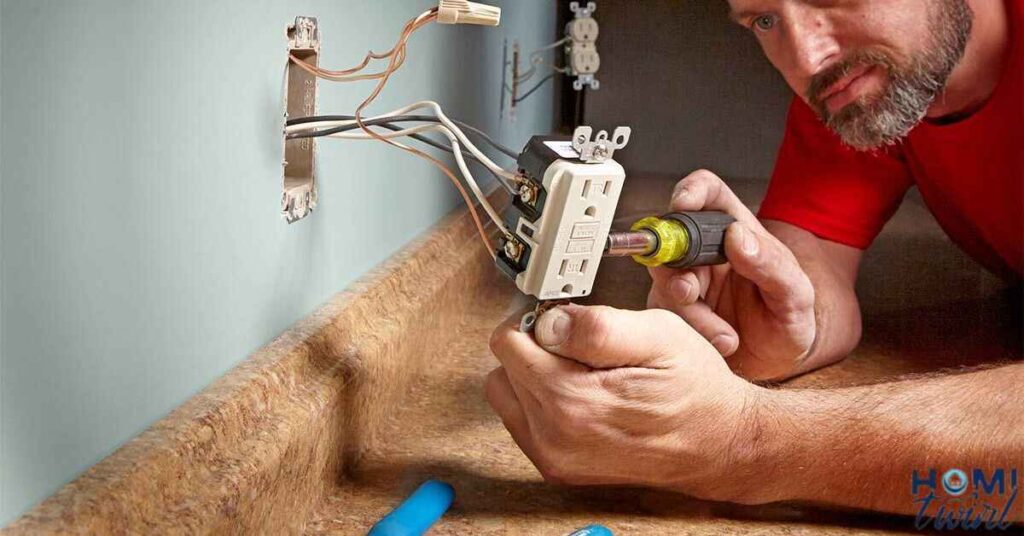
The Smiths lived in a charming 1960s home that had never seen an electrical upgrade. They constantly dealt with tripped breakers and couldn’t run their AC and microwave simultaneously. After a home electrical inspection, they invested in a full system upgrade, including:
- New 200-amp service panel
- Rewiring throughout the house
- Addition of GFCI outlets in kitchen and bathrooms
- Installation of whole-house surge protection
The result? A safer home, lower energy bills, and the ability to finally use their blender without plunging the house into darkness.
Frequently Asked Question
Why should I upgrade my home’s electrical system?
Upgrading ensures safety by reducing fire and shock risks from outdated wiring. It also increases capacity to handle today’s power demands.
How do I know if my electrical system needs upgrading?
Look for signs like frequent circuit breaker trips, flickering lights, or burning smells, indicating potential issues that require attention.
Can I upgrade my electrical system myself?
It’s safer to hire a licensed electrician due to the complexity and safety risks involved in electrical work. They ensure proper installation and compliance with codes.
What are the benefits of upgrading to a modern circuit breaker panel?
Modern panels provide better protection against electrical faults and offer increased capacity to support additional circuits and appliances.
Will upgrading my electrical system increase my home’s value?
Yes, a modern and safe electrical system can enhance your home’s appeal and value, especially when selling or renting.
How long does it take to upgrade a home’s electrical system?
The duration depends on the extent of upgrades needed, but professionals can typically complete the job efficiently to minimize disruption.
What safety precautions should I take during electrical upgrades?
Always turn off power at the main breaker before working on electrical components. Use insulated tools and wear protective gear to prevent accidents.
Are there any rebates or incentives for upgrading my electrical system?
Depending on your location, there may be rebates or incentives offered by utility companies or government programs to encourage energy-efficient upgrades.
Conclusion
Upgrading your home’s electrical system is a crucial investment in safety, efficiency, and convenience. By addressing outdated wiring, old panels, or insufficient circuits, you can significantly reduce the risk of electrical hazards such as fires and shocks.
Modernizing your electrical infrastructure not only enhances the reliability of power distribution but also accommodates the increasing demands of contemporary appliances and technology.
A professionally upgraded system adds value to your home, making it more attractive to potential buyers or renters. Remember, always hire a licensed electrician for any electrical upgrades to ensure compliance with local codes and standards.
This proactive approach not only ensures the job is done right but also provides peace of mind knowing your home is equipped with a safe and reliable electrical system for years to come.

